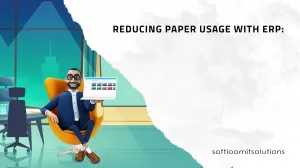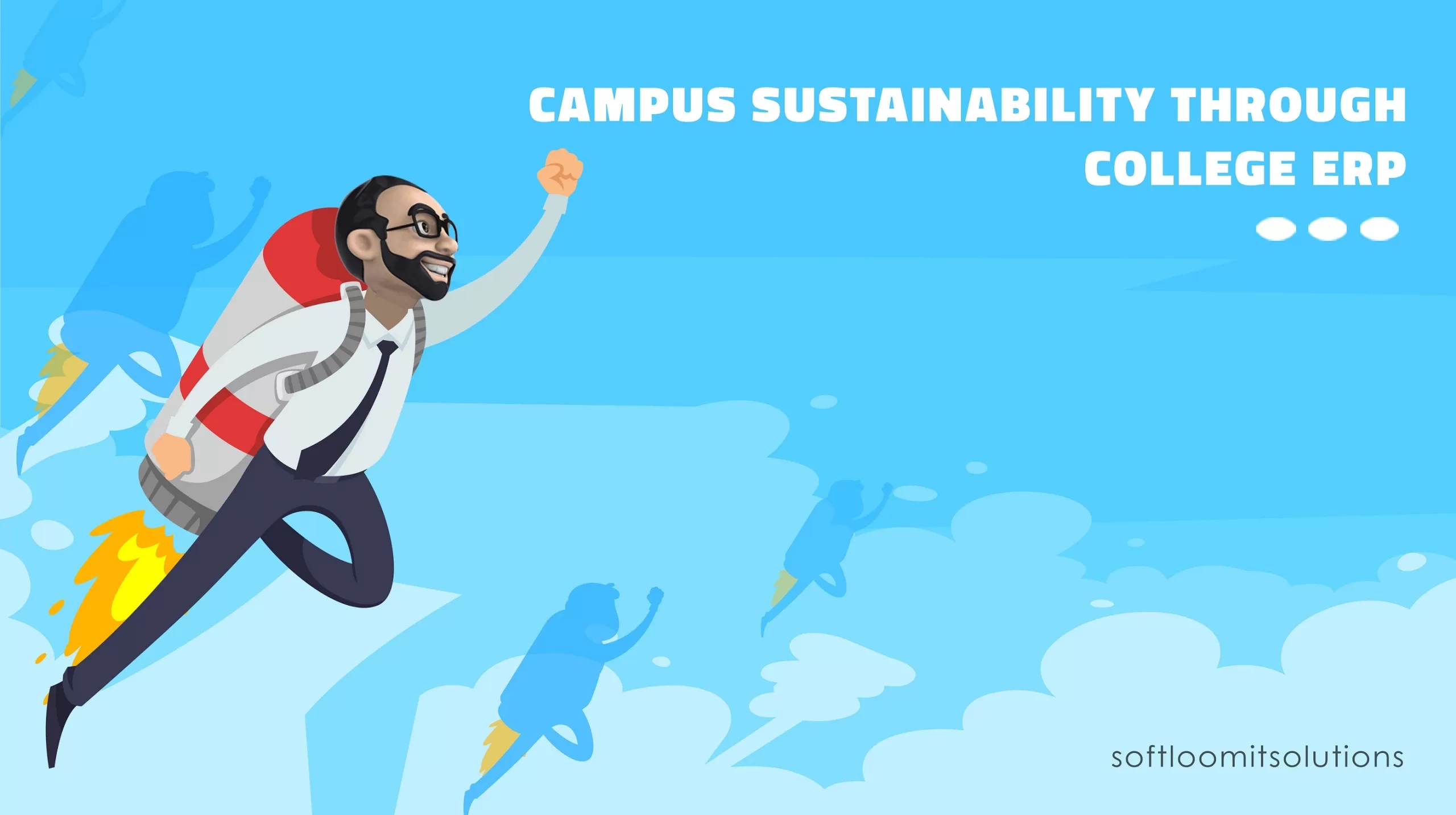Educational institutions play a pivotal role in fostering environmental consciousness among students. Despite these efforts, the question remains: do schools and colleges implement strategies to reduce paper waste and energy consumption? Traditional paper-based processes have long been ingrained in institutional activities, making the shift to alternative methods challenging. However, the advent of digitalization, particularly through advanced tools like the college ERP software, offers a solution to optimize various operational aspects and enhancing campus sustainability.
Reducing Paper Usage with ERP:
-
Organized Data Management:
- Educational institutes handle vast databases, encompassing student records from enrollment to exam performance.
- The ERP system digitizes the database, facilitating efficient storage, retrieval, and exchange of essential documents.
- Automation of data collection reduces reliance on paper-based processes, curbing long-term paper wastage.
-
Reduced Reliance on Paper:
- On average, students consume 900 to 1000 sheets of paper annually for assignments, projects, and exams.
- The college management system integrates digital platforms for learning, enabling students to minimize paper use for assignments and projects.
- Streamlined enrollment procedures further reduce the need for paper-based verification.

-
Institutional Productivity:
- ERP campuses eliminate manual pen-and-paper processes, enhancing campus sustainability and productivity.
- Rosters and registers for staff attendance become obsolete as the system provides tools for efficient tracking of staff activities.
- Digital approval mechanisms replace paperwork for leave applications and client proposals.
-
Sustainable Exam Management:
- Printing question papers contributes significantly to paper consumption.
- The ERP facilitates online exams, promoting sustainability by minimizing paper use.
- Remote assessment platforms, automated evaluation processes, and digitized exam-related activities reduce the environmental impact.
-
Paperless Report Generation:
- Smart campus solutions ensure error-free result calculation and automated report generation.
- Teachers and institute leaders gain insights into student performance, strengths, and weaknesses.
- Key Performance Indicators (KPIs) are efficiently monitored for strategic planning.
-
Automated Data Import and Export:
- The ERP system eliminates unnecessary paperwork through automated data handling.
- Documents are easily stored, maintained, and shared with stakeholders, enhancing accessibility.
- Import and export features streamline document transfer to concerned authorities.
-
Eco-Friendly Financial Management:
- Digital receipts replace paper-based transaction records, contributing to eco-friendly financial processes.
- The college ERP ensures accurate financial records, automated transaction messages, and detailed income and expenditure statements.
-
Effortless Library Management:
- Despite the enduring popularity of physical books, smart campus solutions simplify library management.
- Automation reduces manual efforts in organizing and tracking books, enhancing the efficiency of the library system.
- The system aids in seamless book searching and tracking, minimizing reliance on paper-based processes.
Conclusion
The integration of ERP in educational institutions not only enhances operational efficiency but also plays a pivotal role in fostering sustainability by reducing paper usage. Through systematic digitalization, campuses can embrace eco-friendly practices, setting a precedent for future generations.






